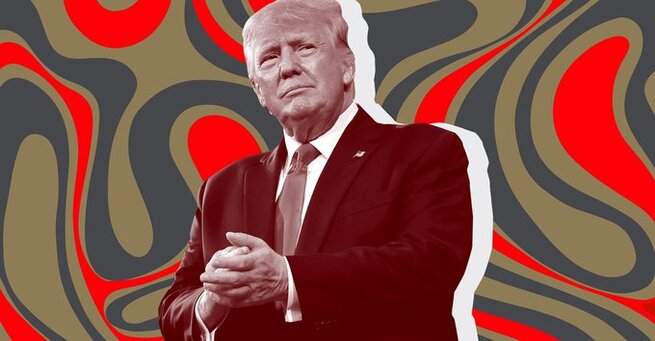
How Trump Weaponized America's Broken Immigration System
What gave Donald Trump the power to carry out sweeping deportations and aggressive immigration enforcement? The answer lies in the structure of America’s immigration system itself — a system riddled with unchecked executive authority, privatized detention facilities, and outdated legislation. Trump didn’t create this system; he merely exploited it to its fullest extent. This article breaks down how U.S. immigration laws, bipartisan in origin, laid the groundwork for Trump's aggressive policies — and why they matter for anyone searching for answers about immigration reform, deportation powers, and executive overreach.
Last week, a stunning development made headlines when Newark mayor Ras Baraka was arrested by ICE agents outside a privately run detention center. Baraka, a U.S. citizen, was trying to visit the facility alongside members of Congress. Instead of being allowed entry, he was charged with trespassing and detained for several hours. This shocking incident is just one example of how far the U.S. immigration enforcement apparatus has extended its reach — sometimes even to American citizens.
High-profile figures have also come under scrutiny. Customs and Border Protection (CBP) recently interrogated Twitch personality Hasan Piker, while Trump’s adviser Stephen Miller hinted at suspending habeas corpus — a constitutional right. These incidents underscore a core truth: the president doesn’t need to rewrite immigration laws to reshape immigration policy. All it takes is the political will to enforce existing laws as aggressively as possible.
Here’s where the system’s design becomes crucial. U.S. immigration laws provide the executive branch with extraordinary discretion. While quotas and basic guidelines are set by Congress, the day-to-day decisions — who gets deported, how aggressively to detain undocumented immigrants, whether to focus on asylum seekers or visa overstayers — fall largely to the president. When Congress stalls on reform, the president gains even more latitude. That flexibility, built into the law over decades, allowed Trump to escalate enforcement dramatically.
Another key issue is the privatization of detention. Companies like GEO Group — which operated the facility where Mayor Baraka was arrested — profit from the expansion of detention centers. These facilities often operate with little transparency and minimal oversight, incentivizing more arrests and longer detentions. Immigration enforcement becomes not just a matter of policy, but of profit, encouraging overreach and undermining civil liberties.
Trump’s crackdown wasn’t built in a vacuum. Democrats and Republicans alike helped create the system. Legislation from past decades — including the 1996 Illegal Immigration Reform and Immigrant Responsibility Act — expanded the grounds for deportation and limited judicial review. Under the guise of “law and order,” these policies handed vast authority to the executive branch.
During Trump’s presidency, that authority was weaponized. Enforcement no longer focused solely on undocumented immigrants with criminal convictions. Instead, it widened to include anyone without legal status, even if they had lived peacefully in the U.S. for years. Raids intensified. Families were separated. Detention centers filled up. The legal machinery allowed it — and Trump’s administration turned the dial to maximum.
Even critics of the president weren’t spared. The arrest of a sitting mayor shows how fragile civil protections can become when immigration enforcement overreaches. The idea that U.S. citizens could be arrested by ICE underscores the urgency of reform. When a system allows for this level of discretion, accountability becomes almost impossible.
The next administration, regardless of party, will inherit this same system. Without legislative reform, any president could use it just as forcefully.
So what can be done? Immigration experts, legal scholars, and civil rights organizations are calling for major reforms. Proposals include limiting executive discretion, enhancing judicial oversight, defunding private detention centers, and creating humane pathways for immigration. But those changes require bipartisan political will — something that has been sorely lacking.
For now, the legacy of Trump’s immigration policy continues to echo. It highlights a dangerous truth: even democratic institutions can enable authoritarian behavior when legal safeguards are weak. Anyone concerned about civil liberties, human rights, and the future of immigration policy should understand that Trump didn’t break the system — he revealed just how broken it already was.
𝗦𝗲𝗺𝗮𝘀𝗼𝗰𝗶𝗮𝗹 𝗶𝘀 𝘄𝗵𝗲𝗿𝗲 𝗿𝗲𝗮𝗹 𝗽𝗲𝗼𝗽𝗹𝗲 𝗰𝗼𝗻𝗻𝗲𝗰𝘁, 𝗴𝗿𝗼𝘄, 𝗮𝗻𝗱 𝗯𝗲𝗹𝗼𝗻𝗴. We’re more than just a social platform — from jobs and blogs to events and daily chats, we bring people and ideas together in one simple, meaningful space.